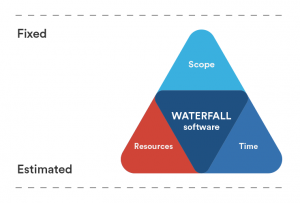
Project Management Triple Constraints – Project management is a complex process that requires juggling various factors to ensure the successful completion of a project. Among these factors, the “triple constraints” represent a fundamental concept in the field of project management. These constraints are often described as the three crucial elements that must be balanced to meet project objectives. In this article, we will explore the project management triple constraints and their significance.
The Triple Constraints
-
Scope
Scope refers to the specific goals, deliverables, tasks, and features that need to be completed to make the project a success. A project’s scope provides a detailed description of what needs to be accomplished and serves as a reference point for project teams. Any changes or additions to the scope can have a direct impact on the project’s time and cost.
-
Time
Time is a critical constraint in project management. It involves setting a specific timeframe within which the project must be completed. The project schedule outlines milestones, deadlines, and task durations. Any delays in the project schedule can affect scope and cost, making effective time management essential for project success.
-
Cost
Cost refers to the budget allocated to the project. It covers all expenses associated with the project, including labor, materials, equipment, and overhead. Staying within budget is a significant concern for project managers, and any cost overruns can impact both scope and time. Effective cost management is vital to achieving project goals.
The Relationship Between the Triple Constraints
The triple constraints are often illustrated using the Project Management Triangle, which represents the interconnectedness of scope, time, and cost. In this triangle, each constraint is represented at one of the corners, showing that changes to one constraint will inevitably impact the other two. For example:
- If scope increases (more work added), time and cost are likely to increase.
- If the project’s time is shortened (a tighter deadline), cost may increase, and scope could be reduced.
- If cost is reduced (budget cuts), scope may need to be adjusted, and the project may take longer to complete.

Balancing the Constraints
Project managers are responsible for striking a delicate balance among the triple constraints. Achieving this balance is crucial to meeting project objectives and ensuring stakeholder satisfaction. Here are some strategies to help achieve this balance effectively:
- Prioritize Scope: Clearly define project scope and ensure that it aligns with the project’s objectives. Be cautious about approving changes to the scope and assess their potential impact on time and cost.
- Effective Time Management: Develop a detailed project schedule that considers task dependencies, critical paths, and potential risks. Monitor progress and address delays promptly to stay on track.
- Rigorous Cost Control: Implement a robust cost management system. Track expenses, maintain accurate records, and seek cost-saving opportunities without compromising quality.
- Communication and Stakeholder Management: Keep all stakeholders informed about any changes or issues related to the triple constraints. Manage their expectations and involve them in the decision-making process.
Conclusion
Understanding the project management triple constraints – scope, time, and cost – is fundamental to successful project delivery. The delicate balance between these constraints ensures that projects meet their objectives while maintaining quality and stakeholder satisfaction. Project managers play a critical role in managing these constraints effectively, making them essential figures in the world of project management.




Be the first to comment